HostGator vs GoDaddy – Compared – Which Offers the Best Hosting?
- By
- Last updated:
- Leave your thoughts
If you’re looking for fast-yet-affordable web hosting, HostGator and GoDaddy are two of the most well-known providers of this type of service.
Both hosts have some excellent value shared hosting plans that are aimed at WordPress users and non-users alike.
However, while the headline features and prices of both hosts look similar, as my tests reveal, there are significant differences in performance when it comes to site speed and the ability to handle multiple simultaneous visitors.
↪️ Note: for anyone looking for more than entry-level shared hosting – and with a slightly higher budget to spend – take a look at this other post of ours comparing The Best Managed WordPress Hosting Services.
So, if you’re considering HostGator or GoDaddy, these test results, carried out using paid tools, as well as my evaluation of their features and hosting technology, will enable you to make an educated decision on which host to sign up with — or whether you should look elsewhere.
Let’s begin…
Table of Contents
- HostGator vs GoDaddy Shared Hosting Plan Details
- Shared Hosting Features Compared
- HostGator vs GoDaddy Performance Tests
- HostGator vs GoDaddy Shared Hosting Technical Details Overview
- Final Thoughts
HostGator vs GoDaddy Shared Hosting Plan Details
Both HostGator and GoDaddy have hosting plans for all types of websites, but, for this comparison, I’m focusing on their affordable WordPress-friendly entry-level shared hosting services. Later on in this comparison, I’ll also take a quick look at their WordPress-only plans to see how they differ from the regular shared plans.
This comparison starts with some points to consider when choosing a plan, before looking at the prices of the different HostGator and GoDaddy shared hosting services.
After that, I’ll explore the key features of the shared hosting plans and their main differences. Next, I’ll share the performance test results, which reveal who’s the fastest shared host and whether websites hosted by HostGator or GoDaddy are better at handling multiple visitors at the same time.
So, let’s begin with a look at what to consider before signing up with a new shared hosting provider…
Affordable Plans
As you’re about to see, the HostGator and GoDaddy shared hosting plans are very affordable. However, be aware that the lowest advertised prices are only available for new contracts, and also that the longer your contract, the lower equivalent monthly fee you’ll pay. Once your initial contract is up, you’ll pay a higher rate to renew your plan. Again, how much more depends on the length of your renewal contract.
Because of this, it’s important to check out the full price before choosing a plan, rather than just looking at the reduced promotional rates. Doing so should help to prevent your host from becoming too expensive once your initial contract is up and it’s time to renew.
However, as your initial contract can be up to three years long with both hosts, you can lock in these promotional rates for a considerable amount of time.
Unlimited Bandwidth Allowances
The affordable shared hosting plans from HostGator and GoDaddy are designed for personal or small business websites, and their usage policies reflect this.
So, while there’s unlimited storage and bandwidth on all of the HostGator and most of the GoDaddy shared plans, your usage is monitored.
If you exceed what’s deemed to be reasonable usage levels for a personal or small business website, you’ll be contacted by the hosts to discuss your situation. In some cases, you may have to move to a better-resourced and more expensive plan.
You can read the HostGator terms of service and the GoDaddy hosting agreement to find out more about how this all works.
With those two points out of the way, let’s look at the key details of the HostGator and GoDaddy shared hosting plans. As mentioned, these plans are suitable for WordPress and non-WordPress websites alike.
HostGator Shared Hosting Plan Details
All three of the HostGator shared hosting plans include unlimited storage and bandwidth:
- Hatchling: From $2.75 (and up to $10.95) a month for one website.
- Baby: From $3.95 (and up to $11.95) a month for unlimited websites.
- Business: From $5.95 (and up to $16.95) a month for unlimited websites and access to additional tools.
Unlike GoDaddy, all of the HostGator shared plans have the same performance specifications. Because of this, you should experience the same site speed and load handling, no matter which one you choose.
I’ll cover exactly what the plans include in more detail later in this comparison, but, to give you a quick idea, the HostGator shared plans come with:
- cPanel web hosting control panel
- one-click WordPress installs
- free WordPress/cPanel website transfer
- free SSL certificate on all plans
- free domain (with contracts of 12 months or longer)
- 45-day money-back guarantee
- 24/7/365 support.
You can view the full details of these plans on the HostGator website, and more information on the pricing can be found here.
GoDaddy Shared Hosting Plan Details
The GoDaddy shared hosting plans aren’t as low priced as the options from HostGator, but they’re still a very affordable option for WordPress and non-WordPress websites:
- Economy: From $5.99 (and up to $8.99) a month for one website with 100 GB of storage and standard performance.
- Deluxe: From $7.99 (and up to $11.99) a month for unlimited websites with unlimited storage and standard performance.
- Ultimate: From $12.99 (and up to $16.99) a month for unlimited websites with unlimited storage and 2x processing power.
- Maximum: From $19.99 (and up to $24.99) a month for unlimited websites with unlimited storage and 2x processing power and speed.
Unlike HostGator, not all of the GoDaddy shared plans will provide the same levels of performance. As you can see above, the Unlimited and Maximum plans have extra processing power and speed.
With this in mind, GoDaddy recommend WordPress users choose the Ultimate plan or above, because of the increased processing power that’s available.
However, you can host a WordPress website on any of the shared plans, and, for this comparison, I used the standard-performance Deluxe plan for the site speed and load handling tests. Because of this, you should get a good idea of what load times to expect if you host a WordPress website on the lower-priced shared plans from GoDaddy.
Before we explore the key features of these plans in more detail, here’s a quick overview of what you get with the GoDaddy shared hosting plans:
- cPanel web hosting control panel
- one-click WordPress installs
- free SSL certificate on some plans
- free domain (with contracts of 12 months or longer)
- 30-day money-back guarantee (on annual plans and longer)
- 24/7/365 support.
You can view the full details of the GoDaddy shared hosting plans on their website.
Shared Hosting Features Compared
Now we’ve covered the key details of the HostGator and GoDaddy shared hosting plans, let’s explore what these two hosts offer in more detail.
Domain Name Registration
If you don’t have a domain name for your new website, then the good news is both hosts provide you with a free one-year domain registration if you sign up for 12 months or more.
However, you’ll have to pay the renewal fees, so, depending on the domain extension (.com, .net, etc.) it may work out cheaper in the long run to register your domain elsewhere, and then point it to your HostGator or GoDaddy account.
You can read our guide on where you should buy your domain to get a better idea of what to do.
Verdict: It’s a draw, because both hosts include free domain registrations on contracts of 12 months or longer.
SSL Certificates
If you’d like to help to keep your visitors’ data secure — and avoid their browsers displaying an insecure warning message — it’s essential your website has an SSL certificate.
All of the HostGator shared plans include a free SSL certificate from Let’s Encrypt that’s automatically applied to your website during sign up. However, if you choose the top-level HostGator Business plan, you’ll get access to a Positive SSL certificate at no extra cost, something they’d otherwise charge you $39.99 a year for. You can also purchase other SSL certificates from HostGator or elsewhere if necessary.
With GoDaddy, only the top two Ultimate and Maximum shared hosting plans include an SSL certificate. However, while the top-level Maximum plan includes lifetime access to SSL certificates, the lower-priced Ultimate plan only includes this free for one year. After that, you can either pay GoDaddy to renew it or arrange your own certificate.
Another option for GoDaddy customers on any of their shared plans is to purchase the SSL Certificate add-on, which starts at around $60 a year, or install a certificate from elsewhere. As you can install your own certificate, it’s possible to apply a free one to your site. However, the process isn’t as straightforward as it could be, and you’ll have to reapply it every 90 days, adding another task to your to-do list.
Verdict: The automatically applied free SSL certificate that’s included with all of the shared HostGator plans makes them the winner here.
Website Backups
Because keeping everything backed up is an essential part of managing a website, it’s good to see both hosts give you the ability to do this on their shared plans.
With both HostGator and GoDaddy, you can back up your cPanel account, which includes your WordPress or other type of website, along with any files you’ve uploaded and settings you’ve configured. In addition to backing up your entire cPanel account, you’re also able to create partial backups that can include some or all of your file directories, MySQL databases and email accounts.
So, while you can back up your website and other content with HostGator and GoDaddy, there’s no WordPress-focused backup tool provided on the shared plans. However, you can add this feature to your account as a paid extra with both hosts.
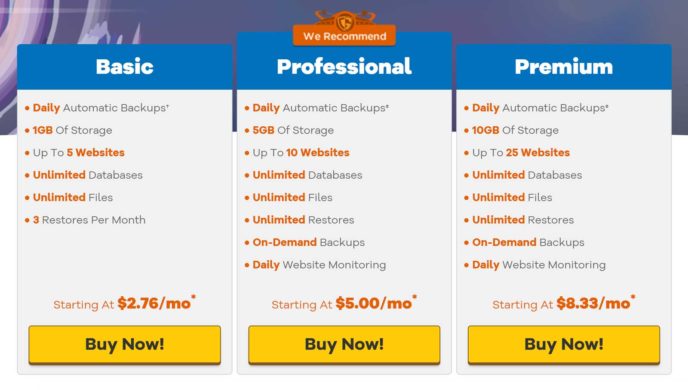
With HostGator, you can add a CodeGuard subscription to your account, giving you access to a WordPress website backup tool with daily automatic backups. GoDaddy customers can add a similar tool to their accounts, via the website back up add-on.
If you’re going to be using WordPress, another option is to install a backup plugin, such as UpdraftPlus. Doing so will enable automatic daily backups for your WordPress website at no extra cost.
Verdict: It’s another draw as both hosts provide you with a way to back up and restore your account, including your website, as well as offering similarly priced WordPress-focused backup add-ons.
Customer Support
If you need help, you can contact HostGator and GoDaddy around the clock, seven days a week, all year long.
You can get in touch via their telephone and live chat support channels, with international phone numbers for customers outside the US. There’s no email support available on the shared plans from either host, but GoDaddy do let you contact support via WhatsApp — something that may be more convenient for people on the go.
Verdict: GoDaddy edge ahead slightly here thanks to the WhatsApp support channel, although the wait times for a live chat connection were sometimes quite long with GoDaddy, especially compared with HostGator.
Now we’ve covered what’s actually included on the shared plans from these two hosts, it’s time to look at the results from our tests to find out whether HostGator or GoDaddy have the best performance.
HostGator vs GoDaddy Performance Tests
To establish which host is the fastest, I used the paid Pingdom service to measure the load times of our test WordPress websites over a seven-day period, while also monitoring their uptime. Then, I used K6 (formerly Load Impact) to simulate multiple virtual users accessing the test sites at the same time to see how they handled visitors.
Here are the results…
Load Time Testing
For the Pingdom load time testing, two sets of tests were performed to find out whether GoDaddy or HostGator had the fastest shared hosting plans.
The first set of tests monitored the speed of WordPress websites using a lightweight theme, while the second set evaluated WordPress websites using a heavyweight theme. This should give you a good idea of what load times you could achieve, depending on whether you create a simple website or a more advanced one.
During the test, Pingdom recorded the speed of the sites every 30 minutes over seven days to establish the average load times. Here’s what I learned…
Lightweight Theme Speed Test Results
For the lightweight theme tests, the popular and free Twenty Twenty theme was installed on the sites. This lightweight WordPress theme works really well for personal blogs and simple business websites — the types of sites these two hosts recommend their shared plans for — making it a good option for the first set of tests.
Once two websites that were as identical as possible were set up with Twenty Twenty activated, Pingdom monitored a basic page, containing an image and some text, from each site.
HostGator Lightweight Theme Speed Test Results
As the graph below shows, the seven-day average load time for the site hosted by HostGator using a lightweight theme was 1.03 seconds.
GoDaddy Lightweight Theme Speed Test Results
The second WordPress website using a lightweight theme, this time hosted by GoDaddy, had a slightly slower average load time of 1.2 seconds, according to Pingdom.
Lightweight Theme Speed Test Results Summary
HostGator delivered faster loading times than GoDaddy. However, with only 170 milliseconds, or .17 seconds, separating the two hosts, there wasn’t much difference when a lightweight theme was used.
Based on these results, if you plan to use a lightweight theme and add simple content to your site, consisting of text and a few images, you should be able to achieve load times of just over one second for your website with either HostGator or GoDaddy.
Load times of around one second are considered good, and both HostGator and GoDaddy did better in this test than some of the other hosts we’ve reviewed, such as DreamHost.
However, if you’d prefer an even faster site, you may be interested in reading our recent SiteGround review. In that review, our test website using a lightweight theme, hosted on the (admittedly more expensive) SiteGround GoGeek plan, loaded in a very impressive 768 milliseconds.
Heavyweight Theme Speed Test Results
To see how HostGator and GoDaddy handled a more complex and feature-rich website, I installed the multipurpose Avada theme on the test sites. The Agency demo was imported, and the homepage was monitored by Pingdom.
Because of its wide range of features and advanced content templates, the best-selling Avada theme produces pages with relatively large file sizes and complicated code — especially when compared with lightweight themes such as Twenty Twenty.
So, if you plan to use this type of theme and import one of its demos, these are the loading times you can expect from HostGator and GoDaddy…
HostGator Heavyweight Theme Speed Test Results
As you can see from the graph below, the page being monitored by Pingdom had a large file size of 6.54 MB, which resulted in a much slower loading time (compared with the site using the lightweight theme) of 2.66 seconds.
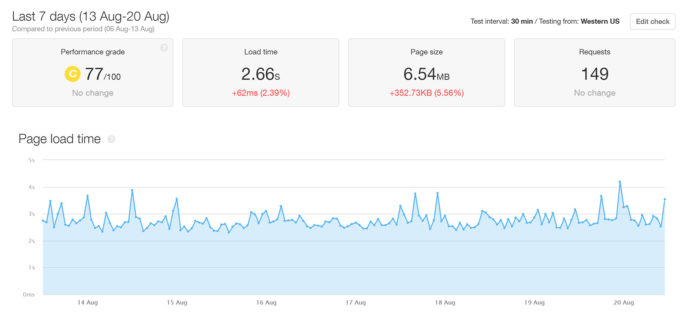
GoDaddy Heavyweight Theme Speed Test Results
For the same site hosted by GoDaddy, the average load time was 3.5 seconds — 0.84 seconds slower than HostGator.
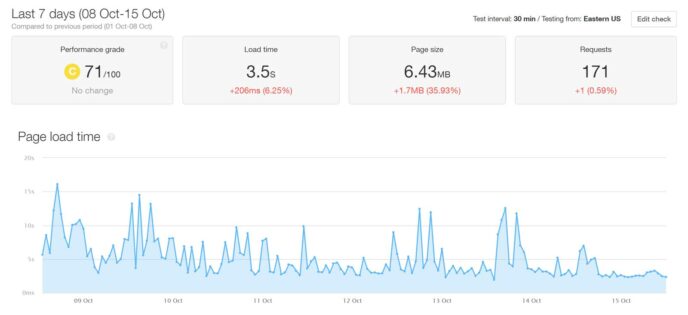
Heavyweight Theme Speed Test Results Summary
With average load times of more than two seconds recorded for both sites, it’s probably best not to use a heavyweight theme and import one of its feature-rich demos if you plan to use the standard performance shared hosting plans from either GoDaddy or HostGator. However, if you’re still determined to do so, then choosing HostGator over GoDaddy will deliver better results.
If you still want to use shared hosting and a heavyweight theme, again, our SiteGround review shows you can get faster loading times on their GoGeek plan.
HostGator and GoDaddy WordPress-Only Hosting Performance
Another option is to choose the WordPress-only plans from HostGator and GoDaddy, but these plans can be more expensive, depending on which option you choose.
As well as having some WordPress-friendly features, such as automatic backups and software updates, these plans should make your website load much faster than it would on the generic shared plans I’m focusing on in this comparison. However, as the test results below show, that wasn’t entirely the case.
For the site using the heavyweight Avada theme hosted on the entry-level HostGator WordPress plan, the load time was ever so slightly faster, coming in at 2.63 seconds vs the 2.66 seconds for the shared plan.
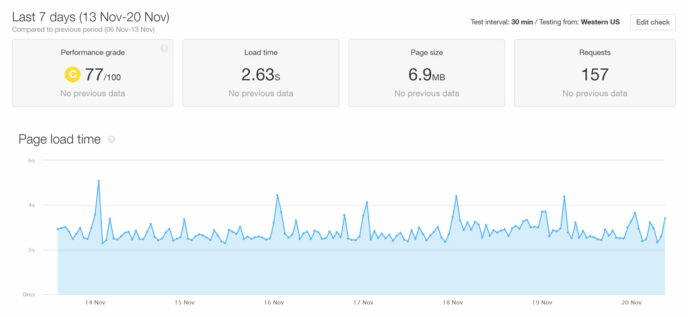
The results were much better for the same site configuration hosted on the GoDaddy WordPress plan. While the site hosted on the GoDaddy shared plan had an average load time of 3.5 seconds, on the GoDaddy WordPress plan it was a very acceptable 1.2 seconds — the same average load time for the site using the lightweight theme hosted on the shared plan.
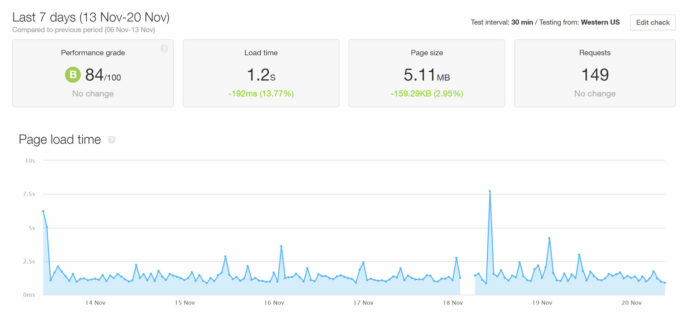
Although the HostGator shared plan I tested was faster than the equivalent from GoDaddy, when it came to their WordPress-only plans, it was the other way around, with the GoDaddy site having a 1.42 second faster average load time.
So, if you do plan to use a heavyweight theme, you may want to consider paying a bit extra for the slightly more expensive GoDaddy WordPress hosting plans. Note that the features and allowances do differ between the shared and WordPress-only plans, so be sure to read the small print to find out exactly what’s included.
For the best results, though, it’s worth considering upgrading to managed WordPress hosting. While these plans are much more expensive than shared hosting, the test sites using the heavyweight Avada theme in our reviews of LiquidWeb and Pressable loaded in less than a second.
Alternatively, based on the results in our comparison of Kinsta and WP Engine, signing up with either of these hosts could see the load times of your site reduced to just over one second.
HostGator vs GoDaddy Loading Time Tests Summary
For both of the speed tests of the shared hosting plans, HostGator outperformed GoDaddy.
However, based on the results, if you plan to use a lightweight theme, or create a simple website, there isn’t much to separate HostGator and GoDaddy. If you’d rather have a more advanced website, though, you should get noticeably faster loading times from HostGator.
If you’d like to know how other shared hosts in the same price bracket handle websites using these themes, you may be interested in our Bluehost vs SiteGround comparison — particularly the SiteGround results.
As you can see from the images above, there are some slight differences between the sizes of the pages recorded by Pingdom. As the test sites were set up in the same way, these differences can probably be attributed to the different caching and optimization features in use by the two hosts. Also, the Pingdom testing location nearest to where our sites were hosted was chosen when setting up the tests.
While this information is helpful, there’s more to measuring performance than just looking at pure site speed.
In the next set of tests, I’ll look at how well HostGator and GoDaddy host websites that have multiple visitors accessing them at the same time.
Load Handling Tests
The results in the previous tests were recorded on WordPress websites that didn’t receive any traffic. But, as your site will hopefully receive visitors, and maybe many at the same time, the load times you achieve could be very different.
To give you an idea of what sort of impact visitors will have when you host your site with either GoDaddy or HostGator, I’ve used the paid K6 service to simulate multiple visitors accessing the test sites at the same time.
During the five-minute test, K6 increased the number of virtual users accessing the site while recording the response times at regular intervals.
Response times are different from load times. However, measuring the response time while the number of visitors accessing the site increases gives a good indication of how these hosts handle load. If they handle load poorly, as shown by the response time going up, you can assume the load time of your site will be negatively affected as visitor numbers increase.
Again, I tested sites using the lightweight Twenty Twenty theme and the heavyweight Avada theme — here are the results…
Lightweight Theme Load Test Results
In the first load handling test, the site hosted on the entry-level HostGator shared plan with the lightweight theme installed performed very well. For this test, K6 was set to increase the number of virtual users accessing the site from 0 to 199.
The graph below shows the response time (represented by the blue line) remaining relatively stable, and never exceeding 750 milliseconds.
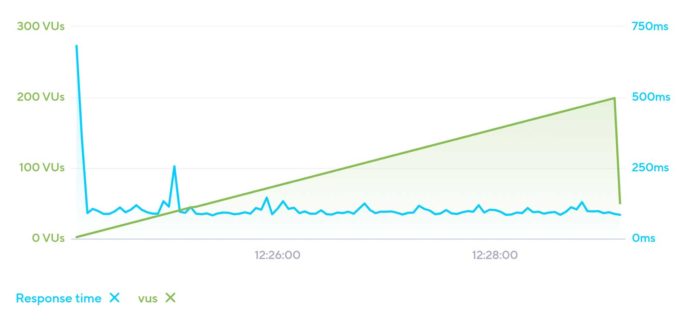
For the next test, the site hosted by GoDaddy was assessed by K6. However, unlike in the first test, this site really struggled as the number of simultaneous virtual users increased. Before the five minutes were up, the site became unresponsive.
After some experimentation, the maximum number of simultaneous virtual users was reduced to 50 from 199. However, the response time still exceeded two seconds by the time 17 simultaneous virtual users were accessing the site. By the end of the test, when there were 50 virtual users on the site, the graph below shows the response time (blue line) was around one minute.
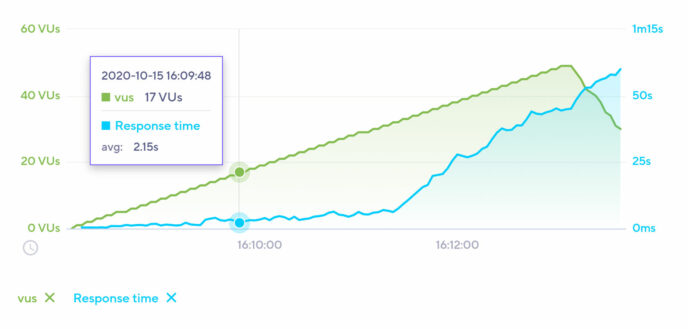
Based on these results, if you host your site with HostGator and build a simple website using a lightweight theme, there shouldn’t be much reduction in performance when up to 199 multiple visitors are accessing it at the same time — although that does depend on what those visitors are doing while on your site.
However, if you decide to host your site with GoDaddy, and you expect to have more than 17 people simultaneously visiting your site, you should consider their Ultimate and Maximum higher-performance shared hosting plans or their higher performance WordPress-only service.
Heavyweight Theme Load Test Results
For those of you who plan to use a more heavyweight theme or build a more complicated website, I also used K6 to evaluate the WordPress websites that were using Avada and its Agency demo.
First up, the site hosted by HostGator was tested by K6. Unlike the site using a lightweight theme, this one failed the first test, so a second test was run.
For this second test, the maximum number of simultaneous virtual users was decreased to 29. However, even with fewer users, the response time exceeded two seconds when there were 12 simultaneous virtual users accessing the site. By the end of the test, when there were 29 users online, the response time was an unacceptable 6.82 seconds.
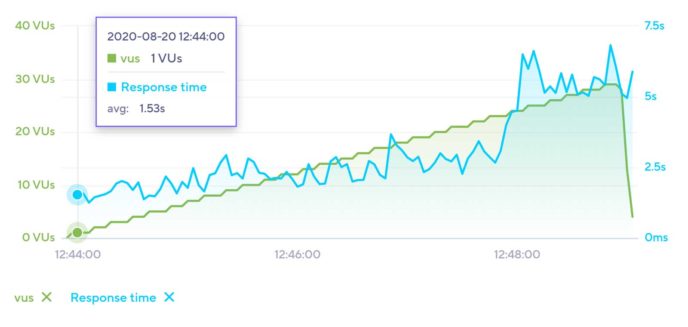
In the next test, the site hosted by GoDaddy performed worse than the HostGator site. The response time reached two seconds when only five simultaneous virtual users were accessing it. By the end of the test, when 13 virtual users were online, the response time hit a staggeringly slow one minute.
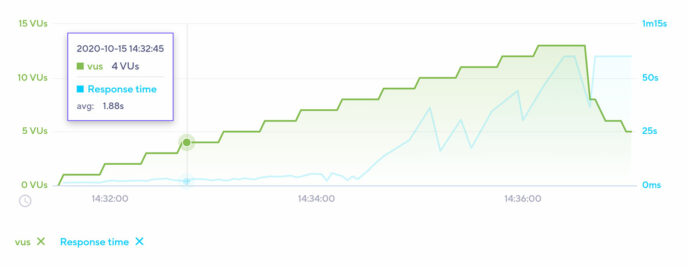
HostGator vs GoDaddy Load Handling Test Summary
In all of the K6 tests of the entry-level HostGator and GoDaddy shared hosting plans, HostGator handled multiple simultaneous visitors better than GoDaddy.
However, although the response times of the HostGator site using a lightweight theme weren’t negatively impacted during the tests, both hosts struggled when a heavyweight theme was used.
Therefore, in line with what both HostGator and GoDaddy recommend, these plans are more suitable for personal and small business websites, rather than feature-packed sites that use lots of animation effects, sliders and video backgrounds.
GoDaddy vs HostGator Uptime
Pingdom was also set to monitor the test sites on the shared plans for downtime. While the GoDaddy sites didn’t experience any downtime, the HostGator sites unfortunately did.
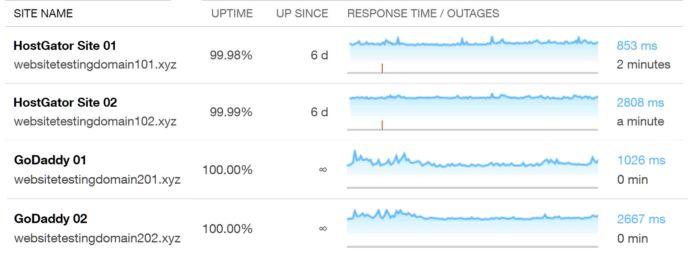
However, there was only one instance of downtime for each site, and it only lasted for up to two minutes. As this resulted in 99.98% uptime for the two sites, they stayed within the range of 99.9% uptime guaranteed by HostGator.
Not all of the hosts we’ve tested have achieved 100% uptime, so this is definitely a plus point for GoDaddy.
HostGator vs GoDaddy Shared Hosting Technical Details Overview
So far, I’ve covered the main features and performance of the HostGator and GoDaddy shared hosting plans. But, before I get to the conclusion of this comparison, here are some technical details you may be interested in:
- Website caching: HostGator provide WordPress users with an in-house Endurance Cache service which has three levels of caching. Site caching is managed through your WordPress dashboard via an in-house plugin. GoDaddy don’t provide access to a caching tool, and recommend you use a third-party plugin.
- Content Delivery Network (CDN): Both hosts support integration with free and paid third-party CDNs. Alternatively, you can pay for the GoDaddy CDN service or the HostGator SiteLock paid add-on.
- PHP: You can choose from a range of PHP versions between 7.0 and 7.4 through a web interface with both hosts, but with GoDaddy you can also choose version 5.6.
- HTTP/2.0: Neither host has HTTP/2.0 enabled on their shared plans.
- SSL: HostGator let you quickly apply a free Let’s Encrypt SSL certificate, import your own, or purchase a premium certificate as an add-on. With GoDaddy, the process of applying a free SSL certificate is a bit more complicated, but you can also purchase one directly from them or import your own certificate from elsewhere.
- SFTP: You can Secure FTP to access your web space for uploading and editing files with both hosts.
- Server file manager: HostGator and GoDaddy both give you access to your server space via a cPanel browser-based file manager.
- Database access: You can access your WordPress and other databases via a browser using phpMyAdmin with both hosts.
- Email service: The shared plans from HostGator and GoDaddy include an email service with webmail, POP3, and SMTP.
- WordPress website management: You have the option of enabling automatic WordPress software, theme, and plugin updates on the shared plans from both hosts.
- Plugin restrictions: Unlike some managed WordPress hosts, there are no lists of disallowed plugins for either host.
- Security measures: Both hosts do monitor their networks for attacks as standard. However, HostGator have SiteLock and GoDaddy have Web Security paid add-ons, which include daily malware scans, automatic malware removal and other security features.
- Post-hack clean-up services: HostGator have a paid post-hack investigation service, and their optional paid SiteLock add-on service includes post-hack clean-up services for sites that have been infected with malware or suffered other security breaches. The GoDaddy Web Security subscription add-on covers website repairs.
- Data center locations: GoDaddy can host your website on their servers in North America, Europe and Asia, while with HostGator websites on the shared plans are hosted in their data centers in Texas, South Central USA or Utah, Western USA.
- Staging sites: Neither host provides access to a WordPress staging tool on their shared plans.
- WordPress website migration: The HostGator shared plans include the migration of one WordPress website and/or cPanel account, while GoDaddy charge $99 per migration.
- Uptime checks and guarantee: Both hosts monitor their servers for downtime but not individual customer websites. GoDaddy guarantee a service uptime of 99.9% (which allows for around 8h 45m of downtime per year) and will provide a hosting discount in the case of downtime, but there are some caveats. HostGator also guarantee server uptime of 99.9%. If uptime falls below 99.9%, you may receive one month of credit for that account.
- Support channels: Both hosts offer 24/7/365 support via telephone and live chat on their shared hosting plans.
To view the full details of the shared hosting plans from these hosts, visit the HostGator and GoDaddy websites.
Final Thoughts
The entry-level HostGator and GoDaddy shared plans definitely provide good value for money. This is especially true if you lock in the promotional rates that are available for new customers for the maximum possible period of three years.
Furthermore, whether or not you use WordPress for your website, creating an online presence with either host is very straightforward.
However, while there’s not much to separate the hosts when it comes to features and user experience, tests revealed that the slightly cheaper HostGator shared hosting plans provide better levels of performance than the service from GoDaddy.
While HostGator did outperform GoDaddy in the performance tests, both hosts struggled when a heavyweight theme and one of its advanced demos was used.
Based on this, both hosts will be suitable if you plan to create a personal website or small business site, keep the design of your site simple, and avoid using a feature-packed theme and one of its demos. However, HostGator would deliver better performance.
If, instead, you plan to create a more advanced site, then it’s recommended that you look elsewhere. Checking out SiteGround, trying out the WordPress-optimized plans from HostGator or GoDaddy, or considering upgrading to higher-performance managed WordPress hosting would all be better options.
Used/using either of these two hosts? Thoughts and experiences?
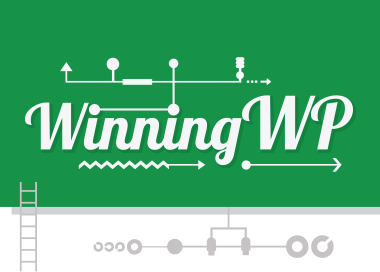
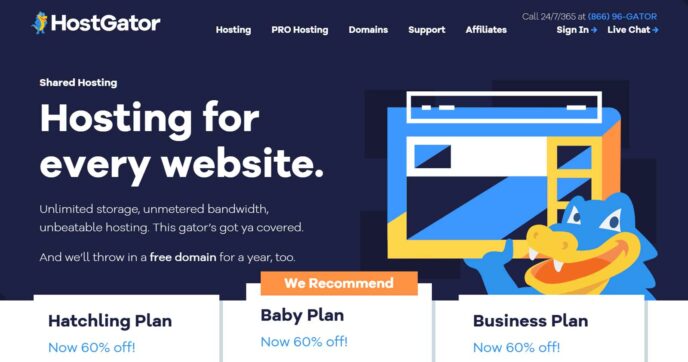
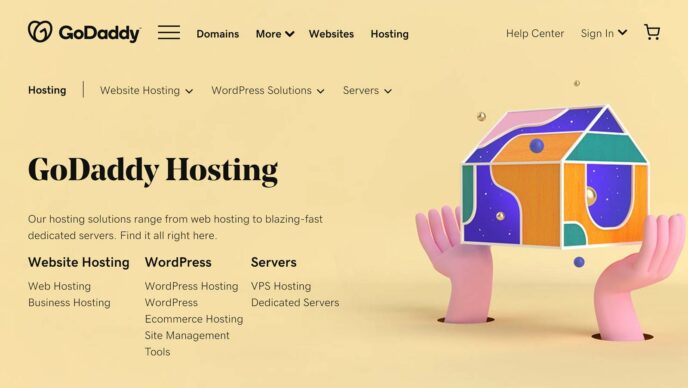

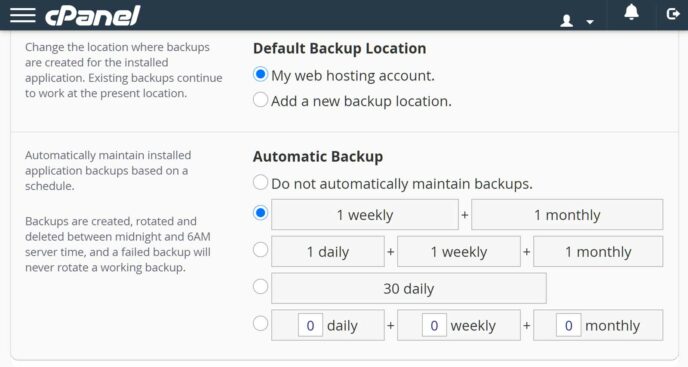
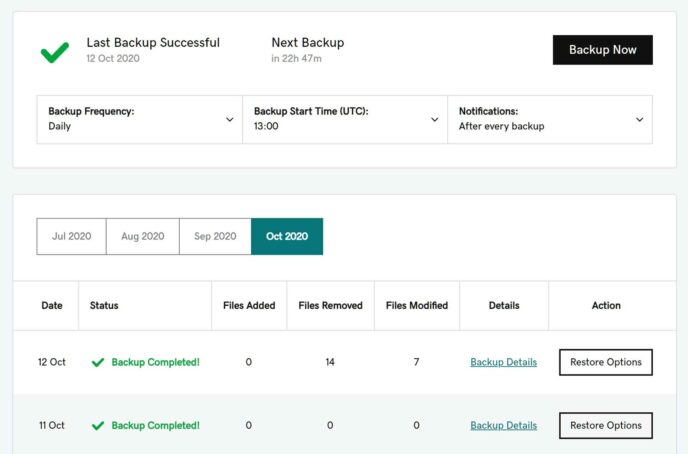

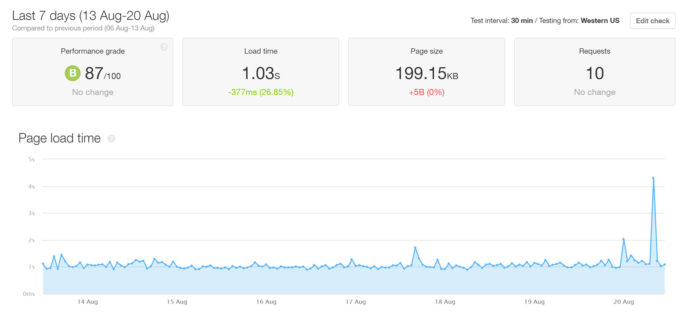
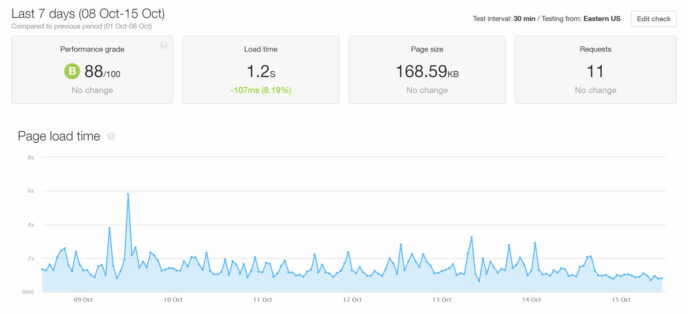



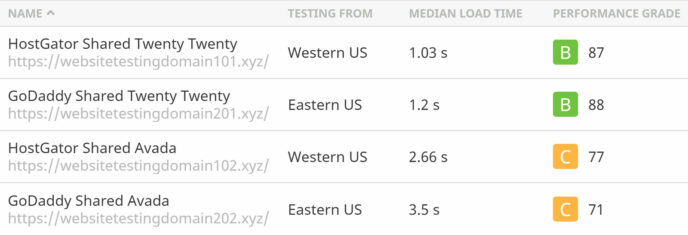
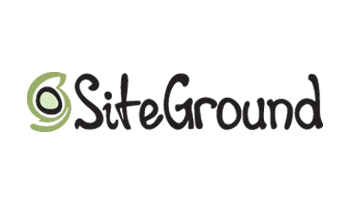
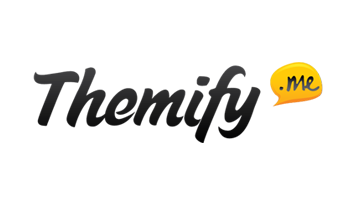
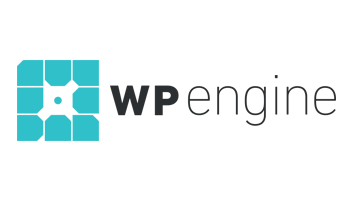
All comments are held for moderation. We'll only publish comments that are on topic and adhere to our Commenting Policy.